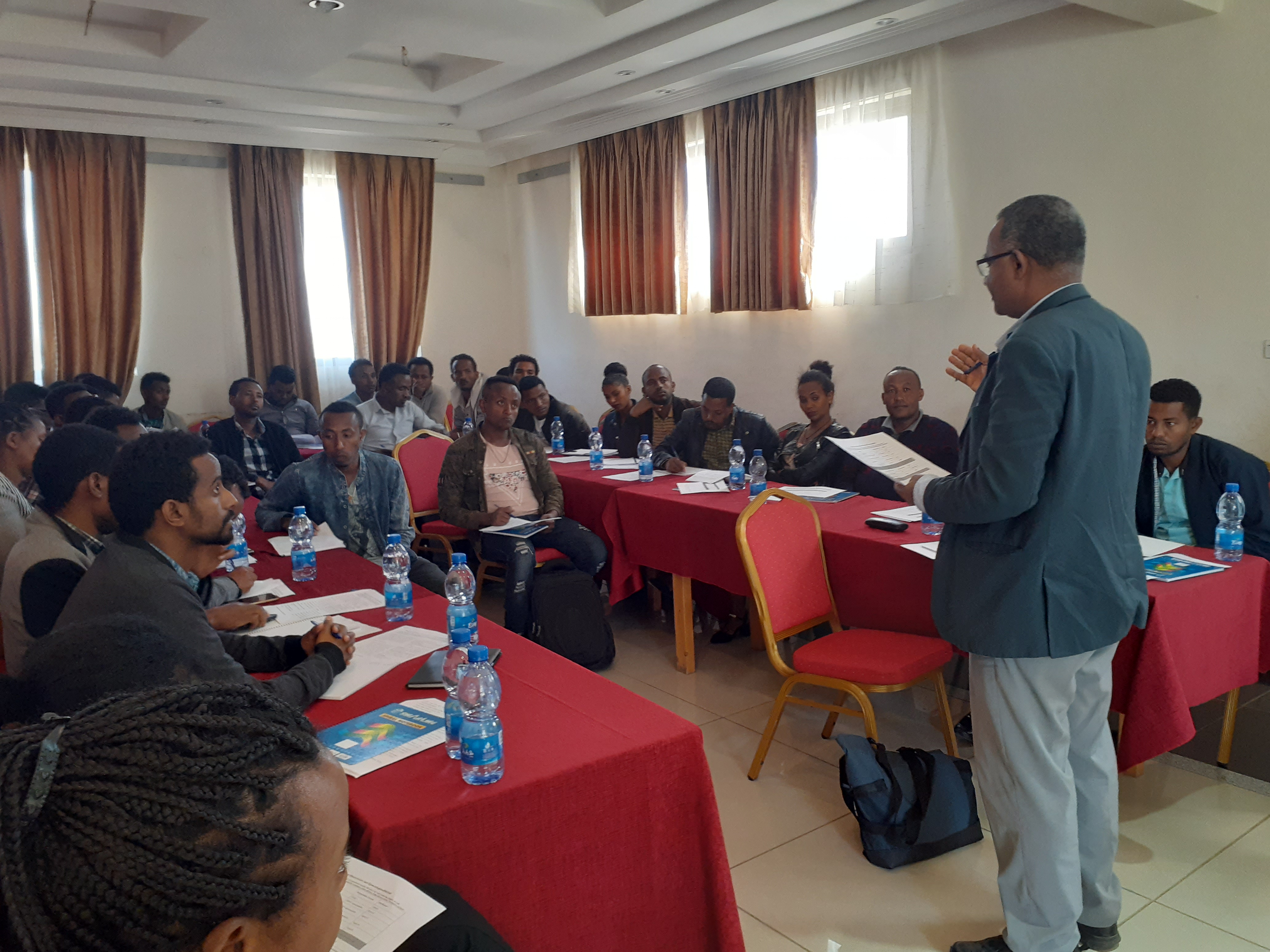 A launching workshop was conducted on a project entitled- Strengthening Capacity and Improving Quality of Reproductive Health (Family Planning (FP) and Compressive Abortion Care (CAC)) and Reducing Stigma on Abortion Care Service Providers. The workshop was conducted in Debre Birhan, Woldia and Assela towns on November 16, 23 and 30 2019, respectively.
A launching workshop was conducted on a project entitled- Strengthening Capacity and Improving Quality of Reproductive Health (Family Planning (FP) and Compressive Abortion Care (CAC)) and Reducing Stigma on Abortion Care Service Providers. The workshop was conducted in Debre Birhan, Woldia and Assela towns on November 16, 23 and 30 2019, respectively.
The workshop is part of a series of such workshops that have been conducted in the Amhara and Oromia Regional States, regions where the project is focused.
The overall goal of the project is to improve the quality of FP and CAC in the primary health care units to increase service uptake and support the Ministry of Health (MoH) on developing an effective de-stigmatization strategy for safe abortion among health care workers. To achieve this end the projects aims at institutionalizing FP and CAC and newborn health mentorship programs at primary health hospitals and health centers through producing Emergency Surgical Officers (ESOs). Strengthening the quality improvement programs in FB, CAC, maternal and child health at primary hospitals and health centers and reducing stigma and discrimination against abortion care providers are also the objectives of the project.
The project involves 40 health centers and 6 hospitals in two zones, North Shewa and North Wollo of the Amhara Regional State and 60 health centers and 6 hospitals in three zones: Arsi, West Shewa and West Harerge of the Oromia Regional State.
The workshop brought together medical doctors, gynecologists, ESOs and other health workers from health centers, hospitals and health bureaus from zonal to the regional level. During the workshop, participants have discussed various challenges and opportunities for the project.
Accepting the project as a great opportunity to improve health services, participants have cautioned on various matters: the culture of passing mentorship skills down to other members in facilities and lack of awareness regarding gaps at various levels of the health structure, among others, are challenges raised by participants.
Funded by the David and Lucile Packard Foundation and partnering with MoH, regional health bureaus, woreda health offices, hospitals and health centers, the project will run until September 2021.
